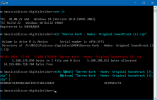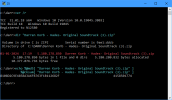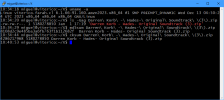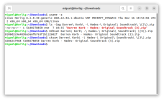- Nov
- 339
- 7
For the first time, I have run into an unexpected result from the @cksum function in TCC. I have a rather large zip file (almost 5 gigabytes), for which the @cksum function produces a different output than the cksum command in Unix systems. On the other hand, the @md5 function does produce the same result as the md5sum command in Unix systems.
Screenshots attached from TCC30 and TCC31 (on different machines), plus screenshots from an Amazon 2023 Linux system and a Ubuntu machine I have lying around here.
(I'm marking this with the "Bug" prefix, but I actually can't say that this IS a bug — only a differing result that needs to be verified as a bug in Take Command's code... heck, the error could lie in the implementation of the function in Unix systems, and that would be a hoot!)
Screenshots attached from TCC30 and TCC31 (on different machines), plus screenshots from an Amazon 2023 Linux system and a Ubuntu machine I have lying around here.
(I'm marking this with the "Bug" prefix, but I actually can't say that this IS a bug — only a differing result that needs to be verified as a bug in Take Command's code... heck, the error could lie in the implementation of the function in Unix systems, and that would be a hoot!)



